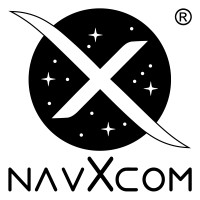Matthew Onassis and His New Startup Aerospace Company—NAVXCOM
I recently had the chance to sit down with Matthew Onassis, the co-founder and CEO of NAVXCOM, a new startup making their name known in the space industry through their work on next generation space navigation and communication systems—even obtaining a partnership with NASA. I had the opportunity to ask Matthew about what NAVXCOM is currently working on, what they are planning for in the future, how he has overcome challenges at the company, and any advice he would give to aspiring entrepreneurs. His answers to these questions and our great discussion will be detailed in the following sections.
To kick off the interview and gain an understanding of Matthew and his company, I first asked him about his inspiration behind co-founding and leading NAVXCOM. Matthew explained that, during his time working an internship with NASA, he and a group of fellow interns came up with the idea for the company. He and one other intern, the current COO of NAVXCOM, decided to “take the idea to the next level,” opening up the LLC in June of 2023. Furthermore, Matthew has always been interested in space. Having always wanted a career in the field, he decided to make his own, starting the company and providing opportunities to others who are just as passionate.
I then asked Matthew to go more into depth on the current projects NAVXCOM is working on, including their current partnership with NASA. Matthew described that their main project is about ground based navigation and communication on the Lunar surface—and eventually Mars. Matthew also explained that NAVXCOM is working on other projects like a quantum gyroscope for the US Navy and additional classified projects that he unfortunately couldn’t go into any further detail on. Matthew also talked about NAVXCOM’s proof of concept partnership with NASA, explaining how they are providing them with a “software suite” instead of a physical product. NASA is providing NAVXCOM with rovers and facilities for testing their systems, ensuring that the architecture on the Lunar surface will be able to continuously communicate with the Earth and satellites.
Next, I asked Matthew for insight on his vision for the future of the company. Matthew shared that they didn't include the word “space” in their company name for a reason. While they are beginning in the space industry due to passion and experience, they are looking to expand their influence to other industries as well. According to Matthew, the space economy is “very small” compared to other segments of the economy, and gets “even smaller if you don't want to focus on satellites.” While Matthew and his team have a passion for space, they are interested in working anywhere with a navigation and communication correlation.
Shifting gears, I asked Matthew more about the entrepreneurship involved with starting NAVXCOM. I asked him about the process of building his current team and how their individual experiences are contributing to the overall mission. Matthew stated that “building a team is the most important thing.” He further expanded that it’s not always about pumping money into high level executives, but rather finding members who are passionate about your mission and want to grow naturally with the company. After going through 1000’s of resumes, Matthew said ultimately the decision has to “come naturally.” He also explained how some of his previous university advisors are a part of the team, helping to mentor and lead the company into its recent successes.
We then dove into discussing the setbacks and challenges NAVXCOM has faced, as well as how they have overcome them. Matthew said that many of their challenges as a startup are “almost always about funds.” A lot of the setbacks faced stem from not having the finances necessary to do what they want to do. A key part of this is the team building process, one that Matthew believes is very important for the ultimate success of a startup. Due to limited budgets, you can’t have a ton of employees, and it is harder to reach out to those with high amounts of experience, so you need to find the best you can in every situation. NAVXCOM is mitigating this problem by finding investors and applying for small grants that have a high chance of success.
Finally, I asked Matthew if he had any advice for entrepreneurs looking to make an impact on the space industry. Matthew explained his passion for this by describing how NAVXCOM’s mission is to “make space accessible to everyone.” He hopes that they can enable new companies to participate in lunar activities and join in their ecosystem. Matthew then gave the advice that entrepreneurs should “start as soon as you can. If you have an entrepreneurial mindset and want to do something, all you have to do is go for it, not letting any company or job hold you back. You don't necessarily need a PhD and decades of experience, but rather a good idea and time to spend on it.” He says that every entrepreneur in the industry should also learn “how to write proposals.” Getting small grants is a great way to fuel your company, and this all starts with the proposals that you ultimately provide. Matthew summed up his answer to this question by urging entrepreneurs, “don’t wait until it’s too late.”
The chance to interview and speak with Matthew was a wonderful experience. Learning about NAVXCOM and their current projects as well as their goals for the future left me inspired and hopeful. I am looking forward to seeing the continued impact they make on the space industry in the future.


